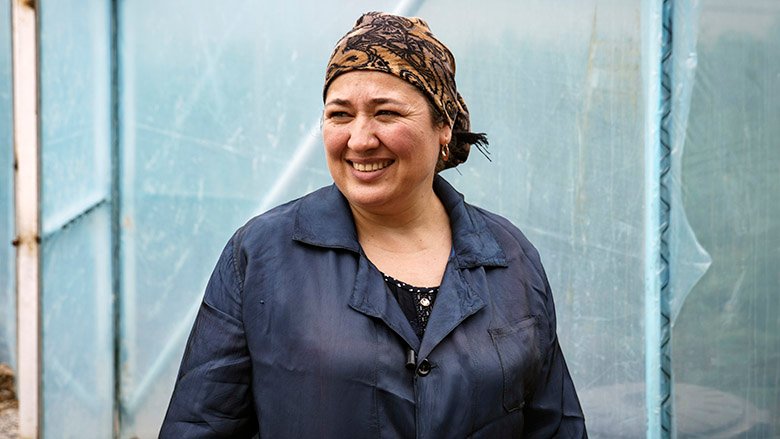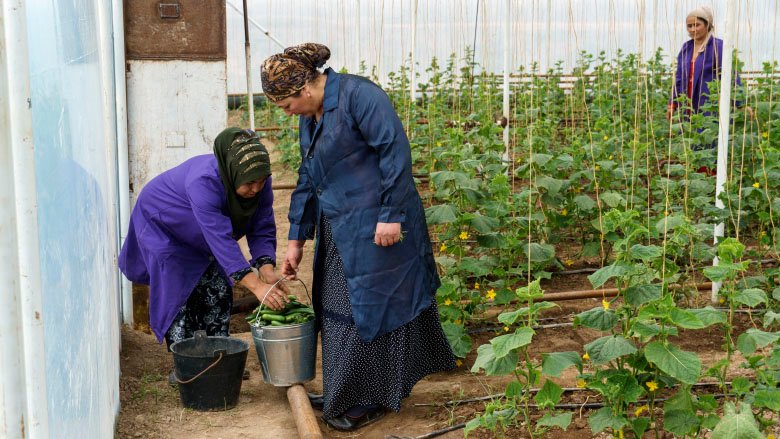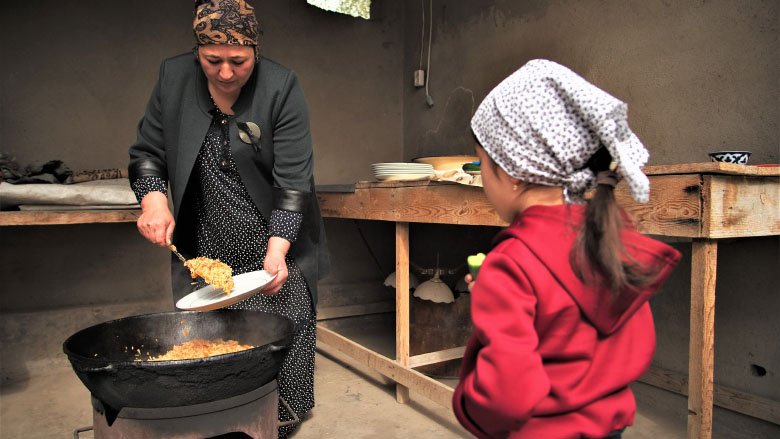Agriculture is central to rural life in Tajikistan. Although only 7% of its land is arable, agriculture contributes to 48% of the country’s employment and to 23% of GDP.
But challenges such as limited access to improved technologies, finance, market, basic farm inputs like seed and fertilizer, and inadequate training prevent smallholder farmers from growing their businesses, increasing their incomes, and taking full advantage of domestic and export markets. This is especially true for women farmers, who face extra pressures and demands in terms of childcare and running households in a country where 1 in 10 citizens—mostly men—work abroad due to lack of income opportunities at home. Moreover, women farmers in Tajikistan are less likely to own assets and have access to inputs and services as men.
That’s why for Shiringul Nurova, a smallholder farmer from the Shahrinav district of Tajikistan, having access to finance for her farm was a game changer. She applied for a loan from a local microcredit institution and received a matching grant for the same amount through the World Bank financed Agriculture Commercialization Project (ACP).
Through access to loans, grants and knowledge, the ACP is supporting farmers and small and medium enterprises in rural areas of Tajikistan to increase opportunities for income generation as well as business and job creation.
With support from the project, Shiringul built a greenhouse, where she now grows cucumbers.
“I have 1.5 hectares of farmland and my husband and I used to grow vegetables there only during the warm seasons. With the greenhouse now, we can grow vegetables year-round. We can sell our products in both the warm and cold months and we have income throughout the year,” says Shiringul.
Shiringul employs 7 people in the greenhouse, three of them women from her village.
“Often men migrate for work and women find it difficult to manage the household. I am glad I could support three women, my neighbors, by giving them a job. I also provide them with a hot meal for lunch,” says Shiringul.
Umed Ulugov, head of the local civil society organization “Peshsaf” stresses that it crucial to spotlight champions like Shiringul, who serves as a role model for other women in the community that have business ideas but are discouraged to apply for financing. Peshsaf, along with other two partner organizations, supports the project’s implementation by ensuring that ACP target groups such as youth, women and people with disabilities are aware of financing opportunities, provide support in developing business plans, and assist applicants during the application process.
“These activities contribute towards sustainability of the agriculture sector, bring jobs to rural areas and help improve people’s lives and livelihoods,” says Umed Ulugov.
“There is a tremendous entrepreneurial potential in Tajikistan, which is not being fully utilized,” says Teklu Tesfaye, the Team Leader for the Project. “That’s why we expanded the project scope from its original focus on primary agriculture, i.e., increasing production, productivity and enhancing commercialization to creating business opportunities for vulnerable groups, including youth, women and persons with disabilities by financing the entrepreneurship training and business development services component. The support increased business knowledge and skills, thereby encouraging new startups and allowing existing businesses to expand and ultimately create new and better paying jobs”.
Since 2017 the project’s matching grants supported 130 start-ups totaling $1.8 million, including 90 launched by youth, 35 by women, and 5 by persons with disabilities. In addition, with project support, over 2,800 farmers, over 1,300 of them women, received grants worth $4 million to boost their yields, expand businesses, and improve their access to domestic and regional markets.



